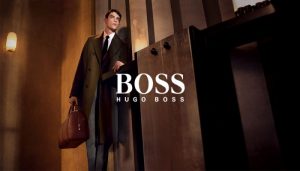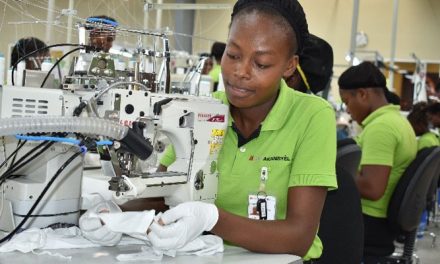
Hugo Boss, a German luxury fashion house, has defined specific goals for sourcing sustainable cotton, says its sustainability report for 2017. By the year 2020, 50 per cent of the cotton will come from sustainable sources, in accordance with the criteria defined in the group’s cotton commitment. By 2025 this percentage will increase to 80 per cent.
Cotton by far constitutes the largest percentage of total material usage at Hugo Boss, followed by wool, synthetic fibres and leather, according to the report. The majority of the woven fabrics sourced by the company come from Europe, with many materials being supplied by long-established partners in Italy.
In order to promote more sustainable cotton production, the group joined the BCI in 2017, which supports farmers with sustainable cotton farming, trains them and provides them with licenses, thus also improving their quality of life. Efficient water usage in cotton farming is one of the BCI’s six core principles and is defined through optimised water consumption and the protection of groundwater and surface water.
In 2017, a sustainable capsule collection was also created under the Boss Men’s Casualwear, where sustainable raw materials, recycled cotton and organic cotton were used exclusively, and where particular attention was paid to special environmentally-friendly finishing processes. The capsule collection will be available with the Fall/Winter collection 2018 in stores, online in Europe and also at selected stores in the Americas and Asia,” the report stated.
“We have made a commitment to sustainable management with the purpose of developing the future growth of the Group. Sustainability at Hugo Boss is based on the interplay between the three factors of quality, innovation, and responsibility. As one of the leading companies in the premium segment of the global apparel market, Hugo Boss and its brands represent premium fashion and accessories for men and women. We ensure that these products are also manufactured in compliance with environmental and ethical standards on the production side. When selecting raw materials and carrying out refinement, we acknowledge the aspect of environmentally- and socially-friendly production. This approach is rooted in our intrinsic conviction and forms part of the quality promise we make to our customers,” Mark Langer, Chairman of the Managing Board and Chief Executive Officer.
The group’s overarching goal is to reduce the use of chemicals for better environmental sustainability and the guaranteed safety of the products. Hugo Boss has developed an internal roadmap in this respect and has set itself medium-term goals. In collaboration with partners in the supply chain, in order to drive forward innovations for reducing the use of critical chemicals across the whole industry, Hugo Boss is also committed to various working groups and alliances.



















